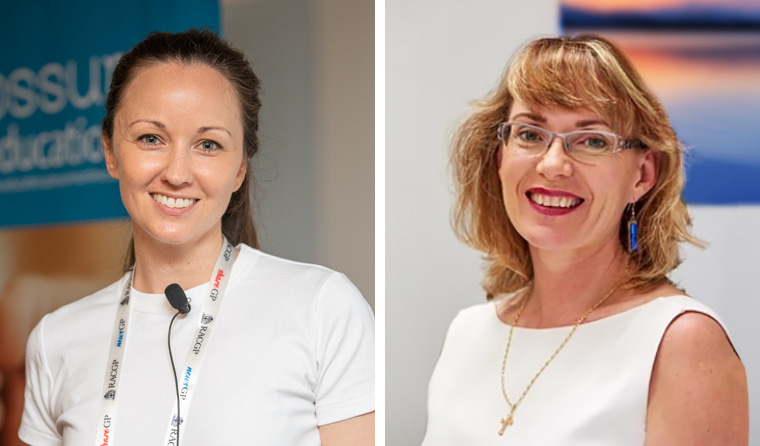News
‘Medicine should have no place for gender bias or discrimination’
Two female GPs in leadership roles discuss why recent negative comments on women in medicine are harmful and should be soundly rejected by the profession.
 Doctors from across the profession have been declaring there is no place for gender-based discrimination in medicine.
Doctors from across the profession have been declaring there is no place for gender-based discrimination in medicine.
Dr Hans Peter Dietz, a senior obstetrician and professor at Sydney University who also holds a leadership position at the Australian Salaried Medical Officer’s Federation (ASMOF), believes the medical workforce has been negatively impacted by increasing numbers of women.
The beliefs he outlined in an email to other ASMOF committee members included that women are less resilient and more vulnerable to illness and suicide, while also being more expensive to train because they work fewer hours during their careers.
He also claimed his opinions are backed by research, stating ‘It’s no use denying that, just because someone’s nutty ideology says that must not be true’.
While his comments have sparked outrage across much of the medical profession, Dr Wendy Burton, Chair of the RACGP Specific Interests Antenatal/Postnatal Care network, told newsGP they will not be surprising to all.
‘It won’t shock some who know this is the sort of thing we’re up against,’ she said.
‘Others will think, “I can’t believe he thought it, I can’t believe he said it out loud”.
‘Still others won’t get it, that this attitude ever existed and still exists today – and that it does so in a fellow who has a leadership role.
‘It’s just really disappointing.’
Dr Krystyna de Lange, Chair of the RACGP’s new National Faculty for GPs in Training, told newsGP that many women in medicine experience adversity throughout their careers.
‘We live in a society where the general perception is that we have achieved gender equality. But this is far from true,’ she said.
‘Most women still experience sexism and harassment on a regular basis. In medicine, this does not discriminate between specialties, public or private sectors or between seniority levels.’
Dr de Lange also observed there is much research to support the existence of gendered inequity in the profession, including from ASMOF itself.
‘ASMOF released the results of a survey showing that gender-based discrimination continues to occur and 55% of female doctors surveyed report having been sexually harassed in the workplace,’ she said.

L–R: Dr Krystyna de Lange believes ASMOF should send a strong message that such attitudes are not acceptable within medicine; Dr Wendy Burton said the presence of female doctors is not a new situation for general practice.
While Dr de Lange acknowledged that numbers of female doctors have risen, she denied the negative effects Dr Dietz claims have resulted from this fact.
‘There has been an increase of women in the medical profession, seen more so in some specialties than others. For example, general practice and obstetrics and gynaecology have higher numbers of female trainees,’ she said.
‘But Dr Dietz’s conclusions that this results in an “increasingly vulnerable” workforce are unfounded and unacceptable.’
Dr Burton, meanwhile, was keen to point out that the presence of female doctors is not a new situation for general practice.
‘Both my parents were country GPs. My mum worked full time alongside my father for the best part of four decades in their community, and she was not the first female GP that community had had,’ she said.
‘So while for some parts of medicine having significant numbers of women in their ranks is new, really, there’s nothing to see here, women working alongside men.’
Dr Burton went on to add that discussions of strength and competence in medicine should never be had in the context of gender – in either direction.
‘The president of RANZCOG [The Royal Australian and New Zealand College of Obstetricians and Gynaecologists] has called [Dr Dietz’s comments] out and very firmly said there is no place for this kind of gender bias or discrimination, and I agree,’ she said.
‘It is true that at this point in time [women] are the only ones who can carry and birth a baby, and literally breastfeed; beyond that, there’s a whole lot of stuff we do that is not gender-specific.
‘Parenting is not gender-specific. Being in a leadership position in a medical college or a hospital is not a gender-specific role. There are strengths and weaknesses each individual has that have nothing to do with gender.
‘Compassion is not limited to women, nor is kindness and gentleness.
‘Men can be magnificent in those roles as well, just as leadership is not the sole province of those with a Y chromosome.’
Since Dr Dietz’s email comments were leaked to SBS News last month, calls for his sacking from his position at ASMOF have increased across the medical profession, even though his comments are unlikely to meet the union’s threshold for the expulsion of an elected council member.
While Dr Burton is disappointed by Dr Dietz’s opinions, she did not want to comment on whether he should be sacked, as she was not privy to the conversation in which they were made.
‘They [the comments] may been taken out of context, although it’s hard to imagine a context where they would be appropriate,’ she said.
Dr de Lange, however, agrees Dr Dietz should face sanction. She believes the union should send a strong message that such attitudes are no longer acceptable within the profession.
‘ASMOF needs to listen to their members, and the members have been loud and clear in calling for further consequences for Dr Dietz’s behaviour,’ she said.
Login below to join the conversation.
bias discrimination doctor health gender
newsGP weekly poll
Within general practice, do you think there are barriers to providing flu vaccinations? If so, what are they?